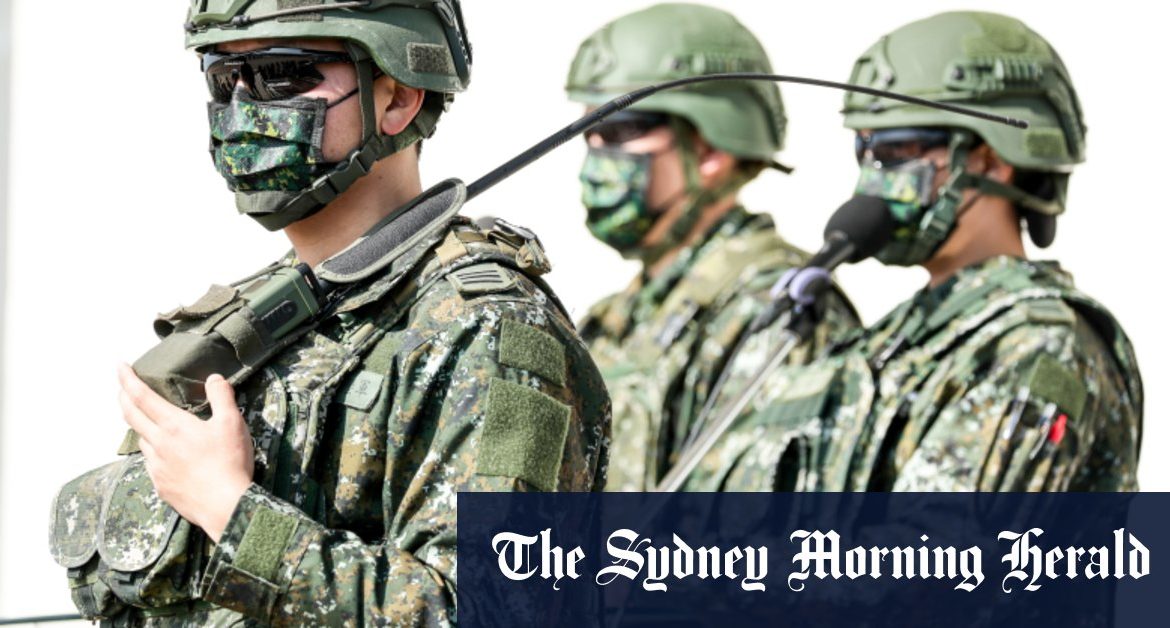“We solemnly warn these Taiwan separatists: those who play with fire will get burnt, Taiwan secession means war,” Wu said. “The PLA will take whatever actions are necessary to resolutely thwart any secession schemes, and adamantly safeguard national sovereignty and territorial integrity.”
Wang Ting-yu, MP, co-chair of Taiwan’s Foreign Affairs and Defence Committee.Credit:Kuan-Ju Huang/Commons
The remarks are the strongest to date from China’s defence establishment on the future of Taiwan, which has been threatened since it split from the mainland in 1949 after years of civil war between the Chinese Communist Party and the Kuomintang. China has set a deadline of 2049 to unify the mainland with its neighbour. A Chinese Communist Party’s five-year plan in October re-committed China to “peaceful” unification with Taiwan but its rapidly expanding military and naval capability combined with the growing nationalistic power of President Xi Jinping has driven concerns unification could be brought forward by force.
“Taiwan has not for one single second belonged to China,” said Wang. “The Chinese Communist Party never had a single cent of tax paid from Taiwan but the past 40 years they have been using their diplomatic tactics and military threats to disturb Taiwan’s society.”
Wang said the island’s future was not only a matter for its 24 million people but for security in the region.
“In the Indo-Pacific there are four potential crises. The East China Sea, the Taiwan Strait, the South China Sea and the India-China border. Taiwan is in three of the four,” he said. “Once the Taiwan situation is stabilised, we can stabilise the major crises in this region.”
Loading
Apart from the democratic island’s symbolic significance, it is also a critical strategic point in the Indo-Pacific. Its deep waters would allow China to launch submarines into the South China Sea and limit their detection. At the moment, China is restricted by the shallow waters along its south-east coast.
Wang said Australia had rising influence in the region and it was its responsibility to safeguard it.
“I have to say for the past four years Australia is doing a lot of right things,” he said. “Taiwan and Australia have a lot of common points. They are democracies, have the same population size, we can cooperate on supply chains and trade, but the regional security issue will be on the top of that list.”
Australia and the US signed a statement emphasising their support for Taiwan in July and reiterated that any resolution of cross-strait differences should be peaceful and according to the will of the people on both sides.
Loading
The US went further in its declassified Indo-Pacific strategy in January, committing to devising and implementing a defence strategy capable of defending the first island chain nations, including Taiwan.
US President Joe Biden has described his commitment to Taiwan as “rock solid”.
Asked if Australia backed this strategy, Defence Minister Linda Reynolds said the Australian government continued to watch very carefully what was happening in the Taiwan Strait.
“We would say to all parties to settle their disputes peacefully and to do it in accordance with international law,” she said.
Japan’s incoming ambassador to Australia, Shingo Yamagami, also urged the Morrison government on Friday to expand its presence in the East China Sea, where China has laid claim to disputed islands and gas fields.
“The security situation in the East China Sea has been worsening year by year, which continues to cause a great concern to us,” he told The Australian Financial Review.
Eryk Bagshaw is the China correspondent for The Sydney Morning Herald and The Age. Due to travel restrictions, he is currently based in Canberra.
Most Viewed in World
Loading







